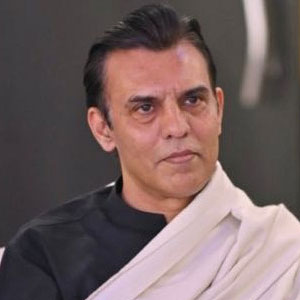As they say in Urdu, “Kufar toota khuda khuda kur ke”. The suspense around “to be or not to be in an IMF program is finally over”.
The bad news is that the IMF program ended prematurely yet again. Out of 23 IMF programs, Pakistan could only complete one program successfully, and that too with dozens of waivers. The rest of the 22 were terminated inconclusively as Pakistan failed to fulfil the commitments made with the IMF.
The good news is that Pakistan managed to secure another IMF deal after the course-correction measures taken last week, steered by no less than the Prime Minister. One may call it a mini program, not in terms of amount but in terms of duration. The US$3 billion program will provide breathing space over the next nine months. The agreement could not only aid in the recovery of Pakistan’s creditworthiness but also enable the resumption of dollar inflow from various bilateral and multilateral lenders, including those who pledged support during the Geneva Conference for the country’s devastating floods. Used sensibly, this opportunity would avert the threat of looming default on Pakistan for now.
The bad news for the people of Pakistan is that they should expect more inflation; a hike in electricity and gas tariffs, and an increase in petroleum development levy, meaning higher prices for petrol, diesel, and kerosine oil. They should also brace themselves for further interest rate hike, which is already at 22%.
However, the good news is that this deal would rescue their purchasing power. Let me explain how!
Without this deal, they would have continued to witness their purchasing power getting eroded due to the depreciation of the value of rupee against all major currencies. Moreover, easing restrictions on imports and discouraging parallel dollar rates in the grey market would encourage the inflow of remittances through banking channels. This will stop panic buying and hoarding of dollars.
The litmus test is whether the government resists its appetite to spend lavishly in the run-up to elections. The IMF is asking for refraining from all unbudgeted, non-targeted subsidies and tax exemptions, which of course, for any political government would be difficult in election weeks.
The Memorandum of Economic and Financial Policies (MEFP), which outlines the commitments made by the government of Pakistan to secure this bailout, is not in the public domain yet. However, one does expect that it would have addressed the reservations of the IMF on “Pakistan losing out the opportunity to broaden the tax net in a progressive manner”. Likewise, one can also assume that securing this program would not have been possible without major commitments for economic reforms from the Pakistani side.
This is easier said than done. Fulfilling those commitments in the shortest possible time (9 months) would be challenging.
However, gauging the political landscape, it seems that the PDM coalition does not feel threatened by two major political parties outside the ruling coalition (PTI and Jamat Islamai) in the forthcoming elections. If either PMLN or PPP is more likely to form the next government, both parties would aim to attain maximum economic stability before the upcoming general elections. This could be achieved through a declared or undeclared “Charter of Economy” or a consensus on some economic measures that have been highlighted by the senior leadership of the PPP and PMLN in their recent public interactions.
Along with not politicizing the implementation of the next IMF program, our politicians also need to learn not to blame IMF for anything that goes wrong in the economy of this country. They should stop painting IMF as a devil as Pakistan’s chronic economic woes result from its decision-makers’ actions and inactions.
Admitting the fact that our policy mistakes in the past have led to a severe emergency and almost default situation, we should use IMF’s upcoming bailout program to implement essential economic reforms that can address the long-standing problems plaguing our economy.






















